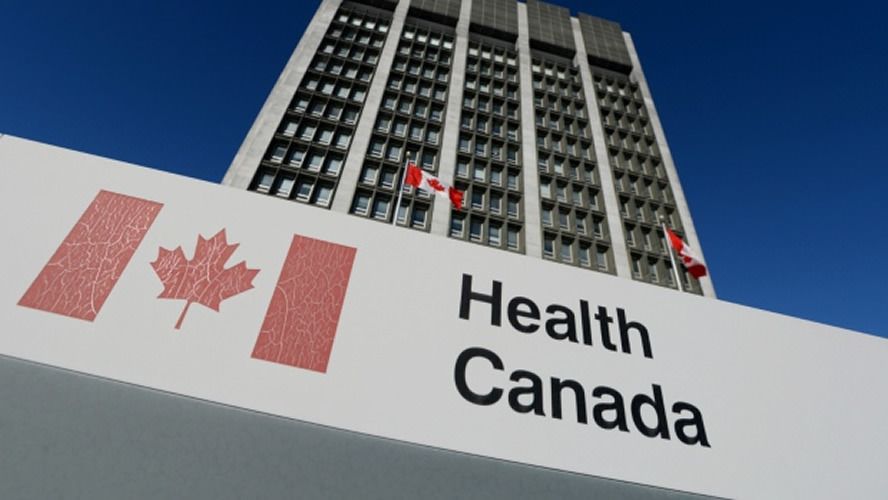Canada’s largest recreational cannabis market will start accepting applications in December for prospective retail outlets to open next spring.
Experts foresee a frenzy of applications out of the gate, as analysts say a fully private cannabis sector in Ontario could support at least 1,000 outlets. For comparison, Saskatchewan saw 1,500 submissions for just 51 licenses.
Ontario’s regulations to support the Cannabis License Act, 2018 will “take effect in time to enable the AGCO (Alcohol and Gaming Commission of Ontario) to begin accepting retail store applications in December,” a spokesperson for the Ministry of the Attorney General confirmed to Marijuana Business Daily.
Prospective licensees need to act before then, however, according to industry insiders.
“If you want to apply to the AGCO for a retail cannabis license,” said Omar Khan, vice president of public affairs at Hill+Knowlton Strategies, a Toronto-based consultancy. “It’s important to prepare now rather than wait until December.
“Both regular and point-of-production sales are subject to municipal opt out, so you want to ensure the local municipal council is onside. As well, it’s anticipated that much of the application requirements will be similar to the existing liquor license applications, therefore it’s good to be ready as soon as the application process is open.”
Get ready now
Trina Fraser, a business lawyer at Ontario-based Brazeau Seller Law who advises cannabis companies, says there are steps businesses can take to prepare even without the regulations to get a head start on their retail applications:
- Incorporate and structure the applicant company.
- Prepare a business plan and raise capital.
- Identify and secure locations (check for proximity to sensitive uses and negotiate “outs”).
- Liaise with neighboring businesses and municipal government – build relationships and share your plan for becoming a responsible cannabis retailer.
- Prepare a preliminary store design/floor plan.
- Develop a preliminary store security plan.
- Start discussions with suppliers for inventory (cannabis and accessories) and services (point-of-sale system, inventory management software, security monitoring, etc.).
- Identify key individuals who will manage the store.
- Develop, search and protect your proposed brand.
- Speak with retailers in other provinces to learn from their application and startup experiences.
Licensed producer disadvantage
Currently, Ontario’s recreational cannabis market is being served only online by the government-run Ontario Cannabis Store, which has been beset with problems and unable to deliver products to consumers, so many existing operators are eagerly awaiting this next step.
Ontario’s rules for recreational cannabis stores will allow licensed producers (LPs) to sell marijuana to consumers at their respective cultivation facilities.
LPs have lobbied provincial governments to allow these “farm-gate” sales since late 2017 in the hopes of creating “a wine country type of experience.”
The catch? That’s the only store they – and their affiliates – are allowed to open.
According to the Cannabis License Act: “The person and its affiliates, as defined by the regulations, may not between them hold more than one retail store authorization.”
Entrepreneur advantage
The rules handcuffing licensed producers are a boon for independent entrepreneurs, franchisers and chains getting ready to go toe-to-toe with multinational marijuana companies such as Canopy Growth and Aurora Cannabis.
Abi Roach, president of Hotbox Holdings, a Toronto products, retail and lifestyle experiences company, is preparing to apply for licenses for three retail locations under the brands Hotbox and The Good Grass – with more in the works.
Roach, also incoming executive chair of NORML Canada, said business operators should work now to get their communities on board rather than waiting to see the final regulations.
“A lot of brick-and-mortar depends on who you are in the community,” she said. “If you come in guns blazing and you’re in a community that’s not ready, then that’s going to be a problem.”
Darren Bondar, CEO of Alberta-based Inner Spirit Holdings, which plans to open recreational cannabis shops across Canada, says Ontario’s approach to marijuana retail is great for small businesses and his franchise system.
Inner Spirit has so far granted 35 franchise territories and is in various stages of securing real estate.
Missing details
Fraser, the Ontario attorney, will be looking for important details in the upcoming regulations.
The regulations will support the new Cannabis License Act, 2018, and are expected to include some kind of limit on market ownership. (Alberta’s limit is 15%.)
They are also expected to define “affiliate” for the purposes of the one-store limit on Cannabis Act license holders.
Fraser is also watching for:
- Setback rules from sensitive uses (i.e. schools, day cares, etc.).
- Density limits (i.e. minimum distance between stores) and how decisions will be made between two applications that are too close to both be issued (first to file? merit? lottery?).
- Any other prescribed basis for license refusal.
- Maximum number of retail store authorizations per retail operator (and affiliation rules surrounding this).
- Limits on production site retail stores, such as whether they will be restricted to selling cannabis products that were processed on-site.
- Application process and what is required for submission.
- What (if anything) will be permitted to be sold in stores other than cannabis (i.e. accessories, branded swag, nonalcoholic beverages, etc.).
- Any minimum pricing rules.
- Standards for store layout, security, etc. (although these may not be in the regulations themselves).
Matt Lamers can be reached at mattl@mjbizdaily.com





